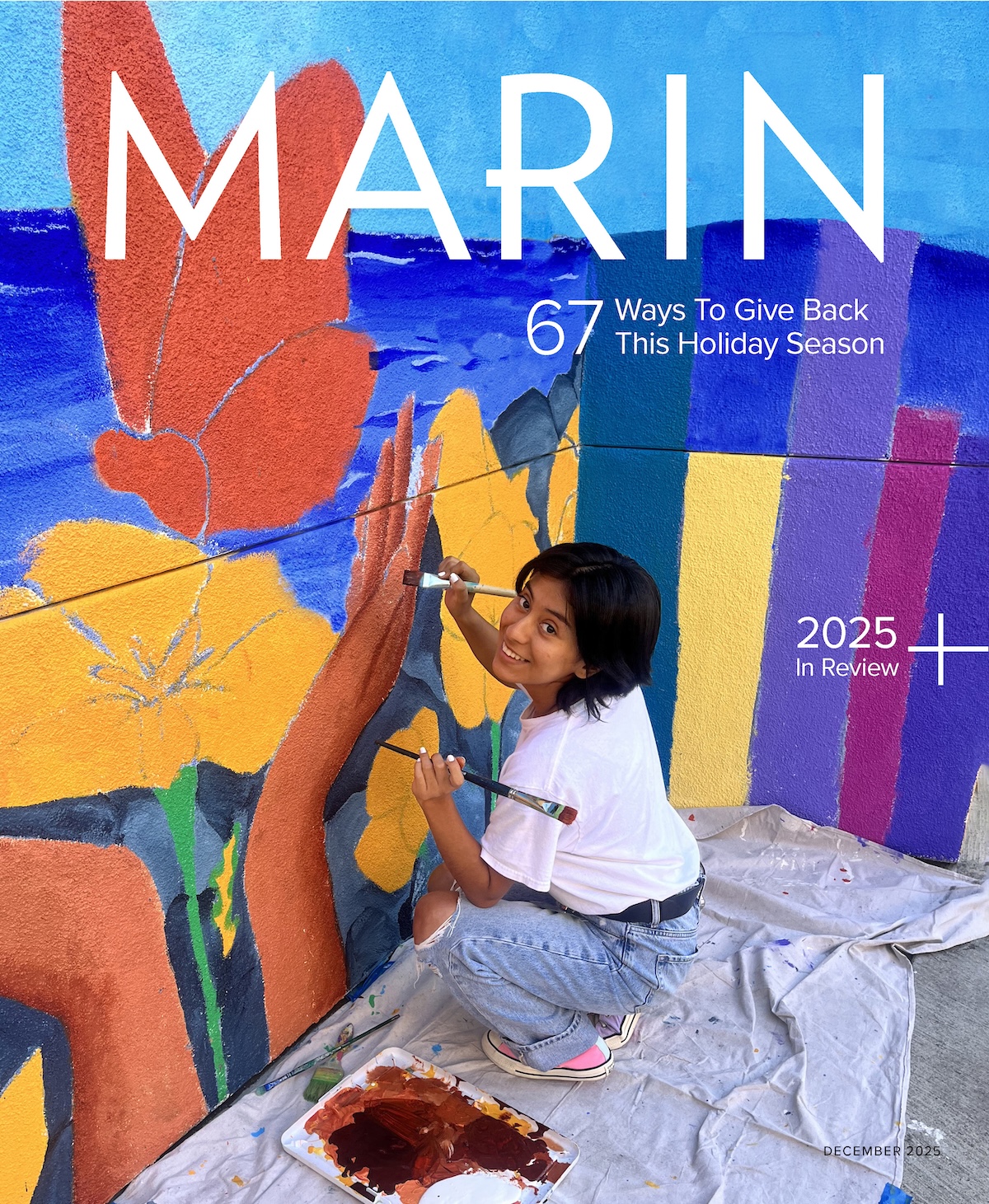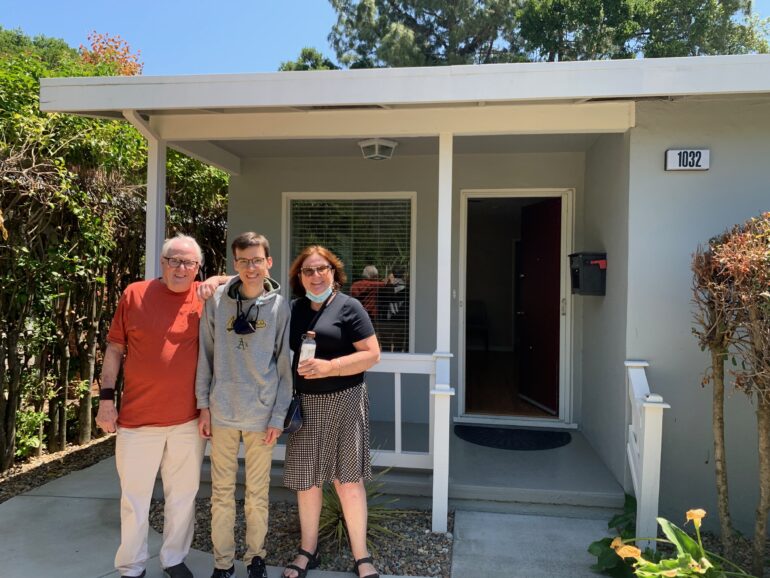After the buzz of the intercom, the squeak of shoes and the man’s anguished screams, the psych ward fell silent. I lay in a chair-bed combo in a small exam room, my eyes fixed on the door. The handle had no lock, and the slit of a window afforded a clear sightline out of the room — and into it.
This was an adult crisis ward for all of Marin County. They took everyone, from the suicidal to the schizophrenic, the homeowner to the homeless. Almost a year later to the day, a patient would suffocate in a struggle with orderlies near my room. It was a scary place to spend the night.
Especially because beside me slept my 9-year-old daughter Annika.
But I fought to stay. There was nowhere else for us to go, because Annika has Prader-Willi syndrome (PWS), a rare genetic disorder with bizarre cognitive, psychiatric and physical symptoms, and had been attacking her younger siblings and running away from home. My wife Heidi and I were desperate to force our insurance company to approve Annika for a PWS inpatient crisis program in Houston. From there, we hoped to get our school district to become the first in California to place a student at Latham Centers in Massachusetts, the only residential school in the country for kids with PWS.
We could not take Annika home. And the only child psych ward in the San Francisco Bay Area that would take a child so young had no beds available. Thus, the absurdity of the adult ward.
What do you do when there seems to be no place in this world for your child? When you feel completely adrift, desperate for your kid to have just one employee at her school or residential care facility who understands her, to have just one friend, to have just a modicum of an ordinary life? Some of us bury ourselves in crippling denial or self-pity. Some of us fight.
Austin and Lesley de Lone taught me how to fight.
Their son Richard suffers from both PWS and autism, which leaves him largely nonverbal. Like most individuals with PWS, Richie endures physical and cognitive challenges, as well as a relentless hunger, due to a misfiring in the hypothalamus. The de Lones were the first PWS family we met after Annika’s diagnosis at age 3.
They invited us into their cozy Mill Valley home, where they lived with Richie’s younger sister, Caroline. Lesley served us succulent lamb chops and a healthy dose of reality. She spoke in her charming British accent but did not sugarcoat anything. Lesley told us how they recently had taken the advice of experts and made the heartbreaking decision to place Richie in 24-hour residential care at the age of 8 because of his extreme insomnia, food-seeking, oppositional behavior and frequent elopements. She also spoke candidly about when she was in our position, having just received word that her child would never be able to live on his own.
“Some parents of disabled children like to say they wouldn’t have their child any other way, that the disability has made their child and them who they are,” she told us over dinner. “I call BS on that. I would cure Richard tomorrow if I could. This syndrome is absolutely horrible.”
Lesley also confessed terrible thoughts she’d had when Richie was born, including the notion of jumping off the Golden Gate Bridge with him and the “what ifs”: What if Richie had not survived his precarious birth or just went to sleep one night and didn’t wake up? These ideas sound cruel and absurd out of context. But when the reality hits that you might still be dealing with your child’s toddler-like tantrums when you are 75 years old, after watching them endure a lifetime of suffering, there is an impulse to escape by any means.
Living with Prader-Willi Syndrome
- Prader-Willi Syndrome (PWS) is a complex genetic disorder occurring randomly in 1 in 12–15,000 live births.
- Symptoms include:
- Low muscle tone
- Short stature
- Cognitive disabilities
- Behavioral challenges, including outbursts and elopements
- The hallmark characteristic — insatiable appetite — which can lead to morbid obesity, diabetes and even stomach rupture and death
- Individuals with PWS require:
- A consistent, stable routine, inside and outside the home.
- A food secure living environment, including a locked kitchen.
- Specially-designed diets, carefully monitored for caloric intake and nutrition
- 24-hour staff trained to address and de-escalate the unique behavioral challenges of PWS.
- Safe and enriching day programs.
Prader-Willi Homes of California, founded by Austin and Lesley de Lone, is dedicated to establishing additional homes so individuals with PWS are able to live with dignity and independence, in a community that understands them. Learn more and donate here.
Austin quietly watched our reactions to Lesley’s bluntness. I knew he was a world-class keyboard player who had done international tours and various stage and studio gigs with a range of superstars, from Elvis Costello to The Fabulous Thunderbirds; he had a cool, laid-back vibe. But he validated Lesley’s points, nodding along.
“We know of several people [in the PWS community] where the husband just said, ‘I’m out of here, I’m gone,’ and did a runner and never came back,” Austin told me in a 2019 interview for a documentary film I was making.
I could identify. I didn’t literally run out on my family after Annika’s birth, but I turned to drugs and alcohol and almost destroyed my marriage. When Heidi nearly walked out on me, I had my own thoughts about the Golden Gate Bridge.

I had since gotten sober, and I understood and appreciated Lesley’s candor. But I glanced at the sadness in Heidi’s face and started to worry that the dinner was going down a dark, unhelpful path. Then the conversation took a turn. Austin started describing Richie in adoring, affectionate terms. Lesley showed me a picture of Austin and Richard, their arms around each other, Richie nuzzling Austin’s shoulder, both of them grinning ear to ear. There was huge, unmistakable joy in that picture. Lesley explained how, in spite of everything, “We love Richard unconditionally. He’s really remarkable.”
Austin reiterated that sentiment at the dinner table and again in 2019. “Richie’s a lovely, sweet guy. We love hanging out with him,” he told me of their weekly visits with their now adult son.
The de Lones then told us something that would have a lasting impact on me. Richard had been bounced repeatedly from residential homes because the staff did not understand PWS and its complex behaviors and could not keep him safe. Austin and Lesley had started a nonprofit that would establish homes specifically for adults with PWS. The organization was called the Richard de Lone Special Housing Project, and it would help people with PWS find their forever home, with an expert staff that understood them. The de Lones said I should join the board when the time was right.
Joining the board remained the furthest thing from my mind over the next six years. We were so overwhelmed by Annika. It was a full-time job for Heidi to manage her and all the medical appointments and emergency calls from school reporting that she had destroyed property, assaulted a teacher and/or ran off campus again. On Lesley’s advice, we put immense effort into making sure Annika’s siblings received the love and support they needed to live happy lives and not grow up resentful of their sister. It felt like raising four kids all under the age of 9. We were running around nonstop from 6 a.m. to 10 p.m., seven days a week. My parents were amazing grandparents and offered us our only respite once or twice a week. Those years are a blur now. I don’t quite know how Heidi and I made it.
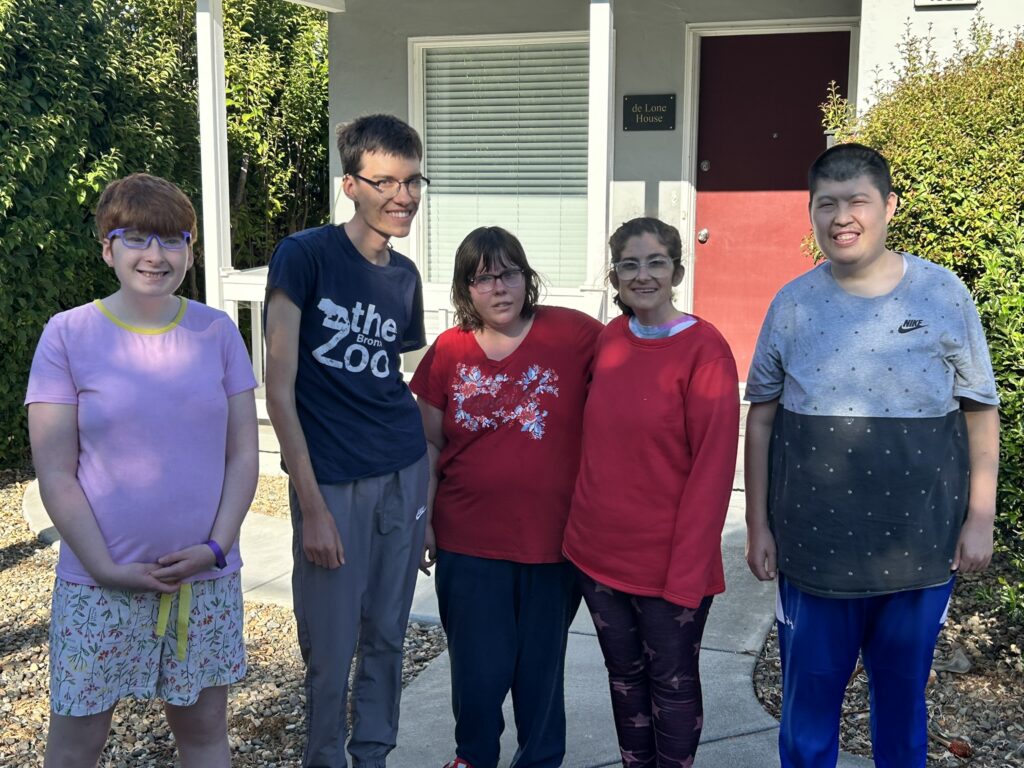
But we did. Those two nights in the adult psych ward forced the insurance company’s hand and got Annika into the residential treatment program. By the end of 2016, she was at Latham Centers. We sobbed when we got in the car after moving 9-year-old Annika into a school 3,000 miles away from home, where she likely will live until she is 22. But there also was an immense sense of relief. She was safe, and we and our two younger children now had an opportunity to love and support Annika but also thrive individually in a peaceful home. To this day, we visit Annika every six to eight weeks and talk to her on the phone daily.
After Annika made it to Latham, Lesley and Austin taught me more about how to fight.
They taught me this time for other people’s kids. I joined the board of their nonprofit. The de Lones had scraped together enough personal money to buy a one-bedroom condo for Richie so that he would no longer be shuffled between different group homes. The nonprofit still had not raised enough money to buy its first house, in spite of heartfelt fundraising efforts by their friends in the music industry, including Elvis Costello, Bonnie Raitt and Boz Scaggs. But we knew how many PWS families were out there, in crisis, suffering just as we once had. So we changed the name of the organization to Prader-Willi Homes of California and redoubled our efforts to buy our first house.
That first home finally opened in December 2023. Through grants, fundraisers and donations we purchased a four bedroom house in Novato and renovated it to fit the needs of individuals with PWS. We also worked with Lifehouse, a stellar local agency that staffs homes for the disabled, to supplement their training and provide access to world-class PWS resources and experts.
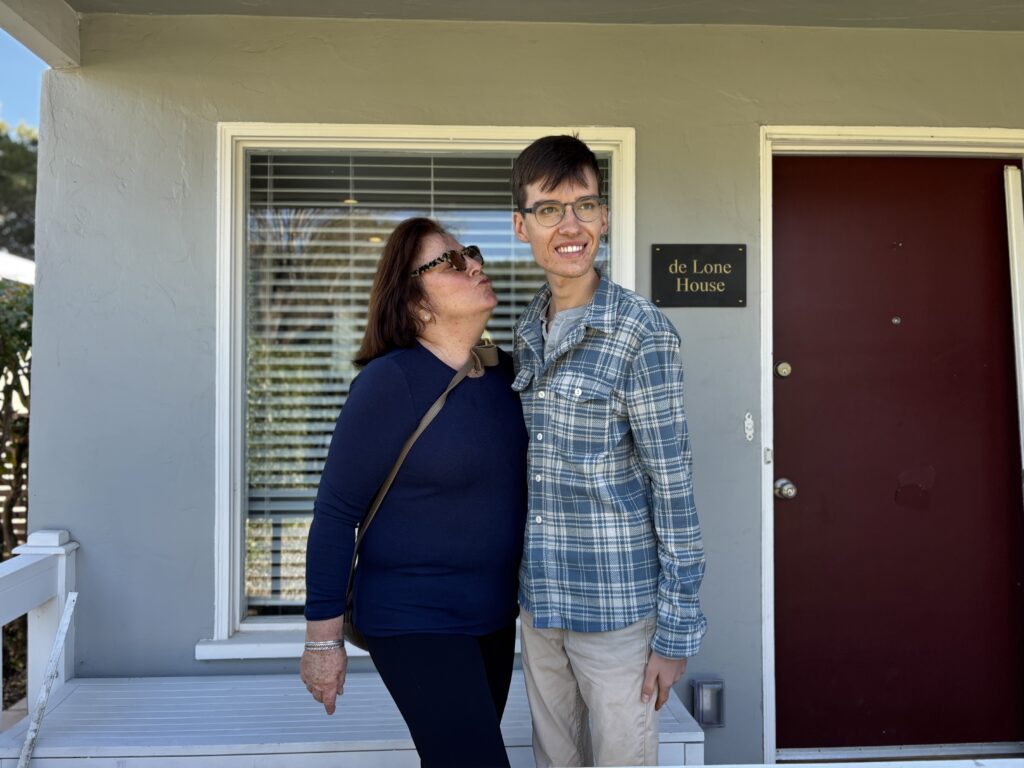
The home has been a resounding success by all accounts. The four residents report loving the stability of the home, the predictability and healthfulness of the food, and their newfound independence. One resident has lost over 60 pounds, thanks to a better diet and food security. Another says he “loves” living with roommates and not living at home with his parents, who report missing him but also feeling an immense burden lifted off their shoulders. Two of the residents are in steady romantic relationships with other individuals with disabilities from the local area. We have given these people the lives we always wanted for our own children.
Our joy is tempered. Luke, the son of one of our board members, Sally George, was rejected by the independent committee that interviewed and selected our first four residents. Without a PWS-centered environment, Luke now weighs over 300 pounds and has bounced between different group homes, just as Richie once did. As I write this, Luke was only recently released from a 5150 hold after running away from his current residence and threatening to kill himself if the police took him back there. Sally does her best to support and advocate for Luke, but they lost Luke’s father to an early death in 2019, and she often feels overwhelmed. She had a stress-induced heart attack last year. Luke remains on our waitlist for our second home, along with over 20 other individuals and their families, who desperately need our help. Sally continues her tireless work for Prader-Willi Homes of California, with no guarantee that her son ever will receive a placement with us.
Austin passed away in January from lung disease. He got to see the first stage of his dream completed, in the form of de Lone House in Novato. A picture of the home opening celebration shows him in the back, behind the staff, family and residents, arms crossed, beaming with joy and pride.
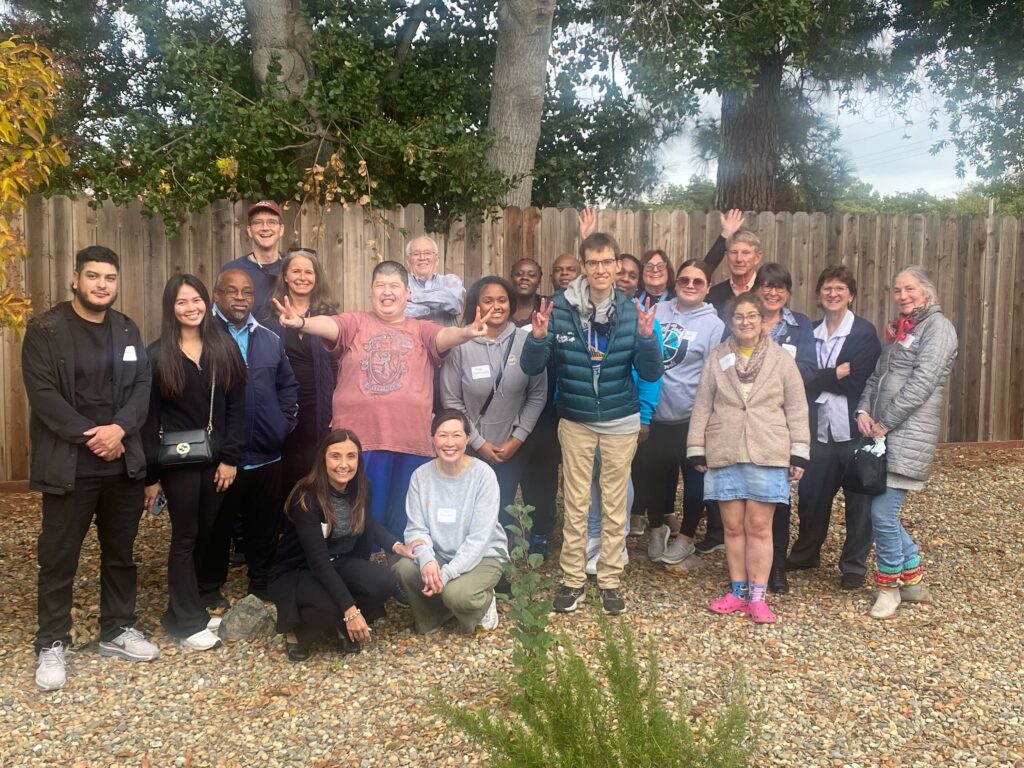
Austin’s passing was not sudden. He knew of his condition a couple years ago, when he convinced me to take over as president of Prader-Willi Homes of California. It’s perhaps the most important work I will ever do. I try to run board meetings with a blend of purpose and humor, something I learned from watching Austin.
But Austin taught me about much, much more. He helped me reframe my notions of masculinity and fatherhood. We live in an era where politicians and online personalities perpetuate and capitalize on a culture of male grievance. Austin never fell into that trap of self-pity, despite the compromises he likely had to make in his promising music career after Richard was born. Action absorbs anxiety, and the actions Austin took were subtle but powerful. In the face of dwindling funding for the arts, he shared his talent and love of music with people all over Marin, from volunteering to play and teach music at Edna Maguire Elementary School to mentoring dozens of Bay Area musicians and running open mic nights at Sweetwater in Mill Valley. He and Lesley took families like ours under their wing, helping them navigate a complicated bureaucracy that was not built with our children in mind. And they continued their tireless work for our nonprofit, well after they had found a forever home for Richie.

Austin taught me that relationships and commitments are not a transactional, zero-sum game. It’s okay to give more than you get; you will be spiritually better for it. He taught me to be openly and frequently affectionate with my children, much to my now 15-year-old son’s chagrin. And he taught me that real toughness isn’t being able to physically protect my daughter in an adult psych ward — it’s being able to endure crappy luck, a collective lack of empathy in society and sometimes crushing bureaucratic systems, for years, in order to make the world a better place for the most vulnerable people.
Austin is a role model for all of us, but especially men. He loved to laugh at himself and others. He was fearlessly vulnerable and emotional at times. He was humble, aware of what was outside of his control, and knew what a lot of men often overlook: We don’t have to fix everything, nor can we. He was creative, and always set aside time for crafting and sharing his music. And he unconditionally loved his family, friends and anyone who was willing to join his fight for a more just, caring, vibrant world.
I miss him dearly and carry on that fight.
